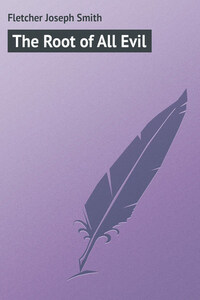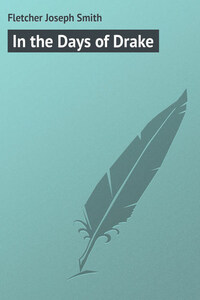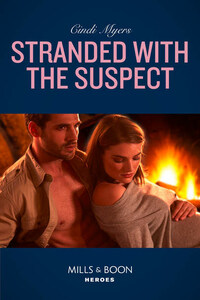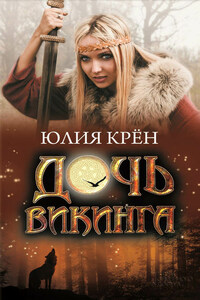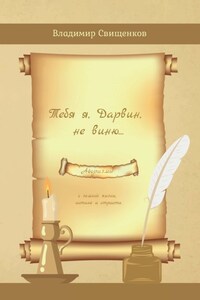Half-way along the one straggling street of Savilestowe a narrow lane suddenly opened out between the cottages and turned abruptly towards the uplands which rose on the northern edge of the village. Its first course lay between high grey walls, overhung with ivy and snapdragon. When it emerged from their cool shadowings the church came in view on one hand and the school on the other, each set on its own green knoll and standing high above the meadows. Once past these it became narrower and more tortuous; the banks on either side rose steeply, and were crowned by ancient oaks and elms. In the proper season of the year these banks were thick with celandine and anemone, and the scent of hedge violets rose from the moss among the spreading roots of the trees. Here the ruts of the lane were deep, as if no man had any particular business to repair them. The lane was, in fact, a mere occupation road, and led to nothing but an out-of-the-way farmstead, which stood, isolated and forlorn, half a mile from the village. It bore a picturesque name – Applecroft – and an artist, straying by chance up the lane and coming suddenly upon it would have rejoiced in its queer gables, its twisted chimneys, in the beeches and chestnuts that towered above it, and in the old-world garden and orchard which flanked one side of its brick walls, mellowed by time to the colour of claret. But had such a pilgrim looked closer he would have seen that here were all the marks of ill-fortune and coming ruin – evident, at any rate, to practical eyes in the neglected gates and fences, in the empty fold, in the hingeless, tumble-down doors, in the lack of that stitch in time which by anticipation would have prevented nine more. He would have seen, in short, that this was one of those places, of which there are so many in rural England, whereat a feckless man, short of money, was vainly endeavouring to do what no man can do without brains and capital.
Nevertheless – so powerfully will Nature assert her own wealth in the face of human poverty – the place looked bright and attractive enough on a certain morning, when, it then being May, the trees around it were in the first glory of their leafage, and the orchard was red and white with blossom of apple and plum and cherry. There was a scent of sweetbriar and mignonette around the broken wicket gate which admitted to the garden, and in the garden itself, ill-kept and neglected, a hundred flowers and weeds, growing together unchecked, made patches of vivid colour against the prevalent green. There were other patches of colour, of a different sort, about the place, too. Beyond the garden, and a little to the right of the house, a level sward, open to the full light of the sun, made an excellent drying ground for the family washing, and here, busily hanging out various garments on lines of cord, stretched between rough posts, were two young women, the daughters of William Farnish, the shiftless farmer, whose hold on his house and land was daily becoming increasingly feeble. If any shrewd observer able to render himself invisible had looked all round Applecroft – inside house and hedge, through granary and stable – he would have gone away saying with emphasis, that he had seen nothing worth having there, save the two girls whose print gowns fluttered about their shapely limbs as they raised their bare arms and full bosoms to the cords on which they were pegging out the wet linen.
Farnish's wife had been dead some years, and since her death his two daughters had not only done all the work of the house, but much of what their father managed to carry out on his hundred acres of land. They bore strange names – selected by Farnish and his wife, after much searching and reflection, from the pages of the family Bible. The elder was named Jecholiah; the younger Jerusha. As time had gone on Jecholiah had become Jeckie; Jerusha had been shortened to Rushie. Everybody in the parish and the neighbourhood knew Jeckie and Rushie Farnish. They had always been inseparable, these sisters, yet it needed little particular observation to see that there was a difference of character and temperament between them. Jeckie, at twenty-five, was a tall, handsome, finely-developed young woman, generous in proportion, with a flashing, determined eye, and a mouth and chin which denoted purpose and obstinacy; she was the sort of woman that could love like fire, but whom it would be dangerous to cross in love. Already many of the young men of the district, catching one flash of her hawk-like eyes, had felt themselves warned, and it had been a matter of astonishment to some discerning folk when it became known that she was going to marry Albert Grice, the only son of old George Grice, the village grocer, a somewhat colourless, tame young man whose vices were non-existent and his virtues commonplace, and who had nothing to recommend him but a good-humoured, weak amiability and a rather good-looking, boyish face. Some said that Jeckie was thinking of Old Grice's money-bags, but the vicar's wife, who studied psychology in purely amateur fashion, said that Jeckie Farnish had taken up Albert Grice in precisely the same spirit which makes a child love a legless and faceless doll, and an old maid a miserable mongrel – just in response to the mothering instinct; whether Jeckie loved him, they said, nobody would ever know, for Jeckie, with her proud, scornful lips and eyes full of sombre passion, was not the sort to tell her heart's secrets to anybody. Not so, however, with her sister Rushie, a soft, pretty, lovable, kissable, cuddlesome slip of a girl, who was all for love, and would have been run after by every lad in the village and half the shop-boys in the neighbouring market town, if it had not been that Jeckie's mothering and grandmothering eye had always been on her. Rushie represented one thing in femininity; her sister typified its very opposite. Rushie was of the tribe of Venus, but Jeckie of the daughters of Minerva.
